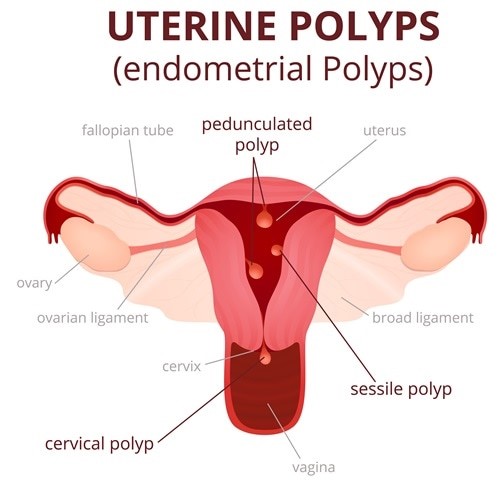A nurse in a community clinic is counseling a client who received a positive test result for chlamydia. Which of the following statements should the nurse provide?
"If your sexual partner has no symptoms, no medication is needed."
"This infection is treated with one dose of azithromycin."
"You need to return in 6 months for retesting."
"You have to avoid sexual relations for 3 days."
The Correct Answer is B
Choice A: "If your sexual partner has no symptoms, no medication is needed." This statement is false and misleading. Chlamydia is a sexually transmitted infection (STI) that can cause serious complications such as pelvic inflammatory disease (PID), infertility, ectopic pregnancy, and chronic pelvic pain if left untreated. Chlamydia can also be passed on to newborns during delivery, causing eye infections or pneumonia. Therefore, it is important that both the client and their sexual partner(s) receive treatment and abstain from sexual activity until they are cured.
Choice B: "This infection is treated with one dose of azithromycin." This statement is true and accurate. Azithromycin is an antibiotic that can effectively treat chlamydia with one oral dose. However, some people may experience side effects such as nausea, vomiting, diarrhea, or abdominal pain after taking azithromycin. Therefore, it is important that the client follows the instructions and completes the treatment as prescribed.
Choice C: "You need to return in 6 months for retesting." This statement is false and unnecessary. Retesting for chlamydia is recommended only if the client has symptoms, has a new or multiple sexual partner(s), or is pregnant. Otherwise, retesting is not required if the client and their partner(s) have completed the treatment and have no further exposure to chlamydia.
Choice D: "You have to avoid sexual relations for 3 days." This statement is false and insufficient. The client should avoid sexual relations until they and their partner(s) have completed the treatment and have no symptoms of chlamydia. This may take longer than 3 days, depending on the type and duration of the treatment. Therefore, it is advisable that the client uses condoms or abstains from sexual activity until they are cured.
Nursing Test Bank
Naxlex Comprehensive Predictor Exams
Related Questions
Correct Answer is B
Explanation
Choice A reason: Antiestrogens are not a first-line treatment for endometriosis, as they can cause severe side effects such as bone loss, hot flashes, and vaginal dryness.
Choice B reason: Progestins are a first-line treatment for endometriosis, as they can suppress the growth of endometrial tissue and reduce pain and bleeding.
Choice C reason: Gonadotropin-releasing hormone analogues are a second-line treatment for endometriosis, as they can induce temporary menopause and cause bone loss, hot flashes, and mood changes.
Choice D reason: NSAIDs are not a treatment for endometriosis, as they can only provide symptomatic relief for pain and inflammation.

Correct Answer is C
Explanation
Choice A: Bleeding between menses is not the correct answer because it is not a specific clinical manifestation of endometrial polyps. Bleeding between menses is a condition that causes spotting or bleeding at any time other than during the normal menstrual period. It can be caused by various factors such as hormonal imbalance, infection, or pregnancy. It can also occur in some women with endometrial polyps, but it is not a definitive sign of them.
Choice B: Bleeding after intercourse is not the correct answer because it is not a specific clinical manifestation of endometrial polyps. Bleeding after intercourse is a condition that causes bleeding from the vagina or cervix after sexual activity. It can be caused by various factors such as trauma, infection, or cancer. It can also occur in some women with endometrial polyps, but it is not a definitive sign of them.
Choice C: Metrorrhagia is the correct answer because it is a specific clinical manifestation of endometrial polyps. Metrorrhagia is a condition that causes irregular or excessive bleeding from the uterus that is unrelated to the menstrual cycle. It can be caused by various factors such as polyps, fibroids, or cancer. It is a common symptom of endometrial polyps, which are benign growths of the endometrium (the lining of the uterus) that can protrude into the uterine cavity and cause bleeding.
Choice D: Vaginal discharge is not the correct answer because it is not a specific clinical manifestation of endometrial polyps. Vaginal discharge is a fluid that comes out of the vagina and varies in color, consistency, and odor depending on the phase of the menstrual cycle, sexual activity, or health status. It can be caused by various factors such as normal secretions, infection, or inflammation. It is not a common symptom of endometrial polyps, which do not usually affect the vaginal flora or pH.

Whether you are a student looking to ace your exams or a practicing nurse seeking to enhance your expertise , our nursing education contents will empower you with the confidence and competence to make a difference in the lives of patients and become a respected leader in the healthcare field.
Visit Naxlex, invest in your future and unlock endless possibilities with our unparalleled nursing education contents today
Report Wrong Answer on the Current Question
Do you disagree with the answer? If yes, what is your expected answer? Explain.
Kindly be descriptive with the issue you are facing.
